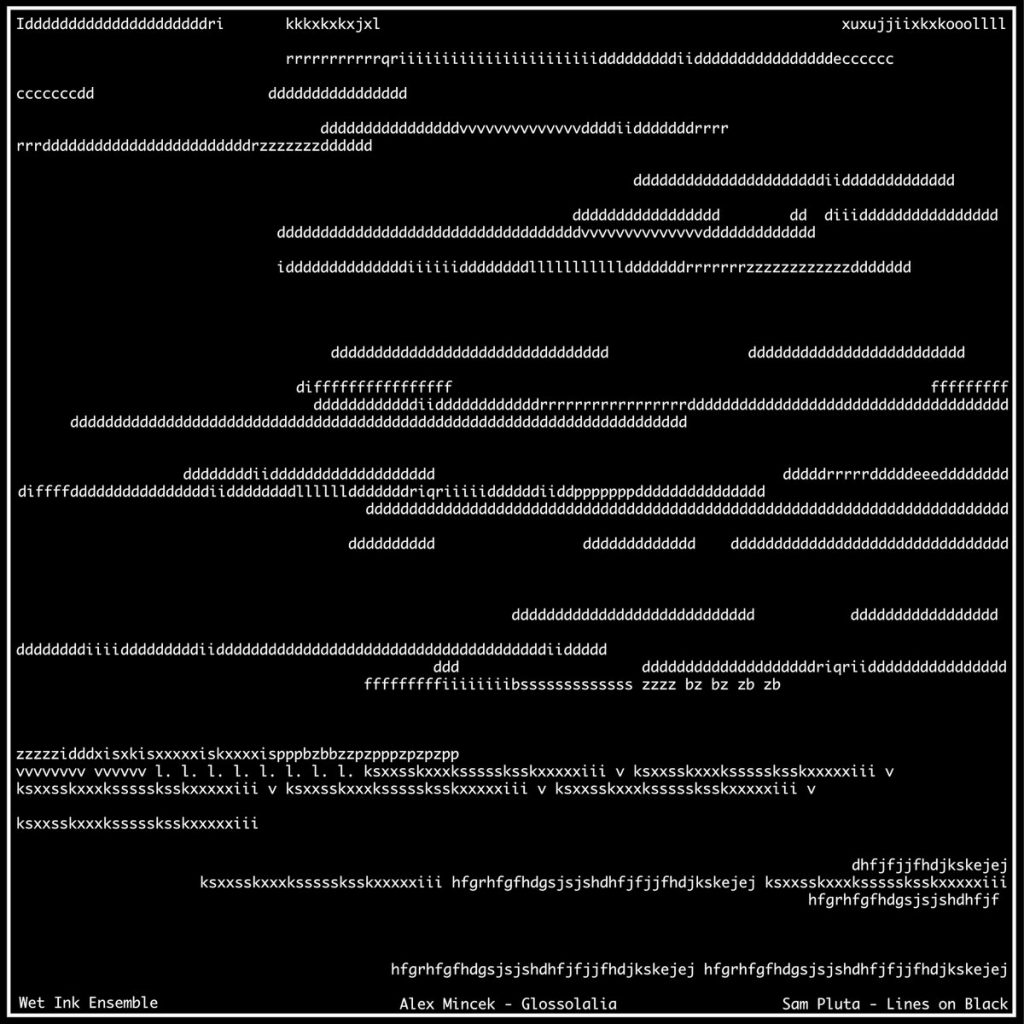By Tyler Smith
Special to ClevelandClassical.com

The term glossolalia, or “speaking in tongues,” describes the phenomenon of speaking in an unknown language, a practice in certain religious sects. This relationship is instantly recognizable in Scat and Scatter, the first movement of Mincek’s piece. Diving in immediately, Mincek peppers the listener with rapid consonants spewing out of “Vicky,” the text dictation feature used on Apple computers. While probably not the case, one might find a slight tip-of-the-hat here to Andy Akiho’s 2011 composition Stop Speaking, an elaborate duet with the computerized companion mentioned above.
During a recent interview with Classical Post, Mincek compared his process of writing for electronic voice, versus writing for Kate Soper.
This feature has such a rigid algorithm that you can really mess it up. In the movement ‘Mimesis,’ Kate is most directly singing material like the computer voices. This reveals what is so special about the computer voices — it’s their lack of any kind of rhetoric. Not only do they not have a body, there’s no they there. It presents the sound in a completely different way.
“Mimesis,” the fourth movement of Glossolalia, also brings to light the idea of manipulating the listener’s auditory perception, or more specifically, emphasizing the indistinction between what is “real” versus “synthetic.” This movement introduces the unique Chimeraphone, an instrument invented by Mincek and made from plumbing materials. The Chimeraphone’s similarities to Pluta’s low synths, in combination with Soper’s integration with electronic voices, leaves the listener wondering what exactly they’re hearing. Incorporating sounds from unknown sources is a wonderful aspect of Glossolalia, and Mincek excels at the technique.

Although much of the piece is improvised, including two entire movements, Pluta approaches the composed parts in a special way. While talking about the album with Mincek, Pluta spoke about his “inside out” compositional method. “I might write the ending of a piece first, then the beginning, then the middle, and then go back and expand upon the middle and then the beginning and then expand the beginning of the middle, etc.”
The first movement “Duo,” features Modney on violin and Lesser on flute. This virtuosic introduction while fully notated, could just as well be an improvised duet. Later on, with the addition of the rest of the ensemble, the movement outgrows its title and begins to intensify. Ultimately the piano comes into the foreground, resulting in a beautiful seamless transition into Wubbels’ solo piano movement — curiously titled “Piano Solo.”
Wubbels’ improvised solo is quite spectacular. Its Messiaen-like qualities bring a very tasteful change to the album. During Pluta’s Classical Post interview, he discussed the thought process behind incorporating improvisation into the piece.
It’s placing your faith in somebody who you know and love and then putting them in a musical situation where you know they’ll contribute greatly. The music that came before, the music that comes after, and Eric’s understanding of me as a person are going to shape his performance . . . I don’t actually have to tell him anything, because I know that what he does is going to be great.
He was right. It was great.
Directly following Wubbels’ solo is the second improvised movement, “Voice and Electronics.” It’s a great example of Pluta’s technique of manipulating Soper’s improvisation on the fly. The calm beginning erupts into an insane pandamonium, with flustered screams coming from Soper and Pluta not far behind, adding some of the best live electronics you will find anywhere.
The seventh movement, “On/Off,” gives the listener no break with its constant bombardment between electronics and the unision ensemble. Finally, the ears are given relief with the drastic shift into the penultimate movement, “Canyon,” a duet between Pluta and Lesser.
This album is crazy — 750 words later and the two pieces are still an enigma. Mincek and Pluta have managed to create atmospheres unlike anything that’s been done before, and words cannot accurately do this album justice. I suggest you drop what you’re doing and go listen to it now. It will be the most exciting hour and fourteen minutes of your quarantine.
The album is available on Carrier Records, or on your favorite streaming platform.
This article is reprinted from The Critical: all things music at Oberlin.
Published on ClevelandClassical.com May 12, 2020.
Click here for a printable copy of this article



